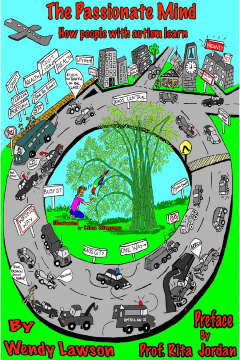
Additional Information
Book Details
Abstract
In her new book, Wendy Lawson examines traditional theories about the autism spectrum (AS) and reveals their gaps and shortcomings. Showing that a completely different way of thinking about AS is needed, she sets forward the theory of Single Attention and Associated Cognition in Autism (SAACA), an approach that explains autism in terms of the unique learning style of AS individuals.
The SAACA approach suggests that whereas neurotypical people can easily shift their attention from one task to another, those on the autism spectrum tend to use just one sense at a time, leading to a deep, intense attention. From the perspective of this new approach, Wendy describes practical outcomes for individuals, families, and places of education and employment, and shows that when the unique learning style of AS is understood, valued, and accommodated, AS individuals can be empowered to achieve their fullest potential.
This is a fascinating read for anyone with a personal or professional interest in the autism spectrum, including clinical practitioners, educators, researchers, individuals on the spectrum and their families, teachers, occupational therapists, and other professionals.
The Passionate Mind: How People With Autism Learn offers a fine survey and the author's own theory of Single Attention and Associated Cognition in Autism, an approach that explains how individuals with autism learn and perceive... Educators, employers and families receive keys to using this unique learning style to help autistic learners achieve their fullest potential. Highly recommended!
The Midwest Book Review
Dr. Wendy Lawson, a psychologist, qualified counsellor and social worker has operated her own private practice for many years. Wendy was awarded fourth place as 'Victorian Australian of the year' in 2008. Originally diagnosed as being intellectually disabled, then in her teens as being schizophrenic, and finally in 1994, Wendy was diagnosed as being on the autism spectrum. The mother of four children, Wendy has been married, separated and divorced, has experienced the death of one of her teenage sons, lost friends and status due to being openly gay, faced ill health and recently is coming to terms with the fact that she is aging! Wendy's youngest son is also on the autism spectrum.
this book is a essential and accessible read for all interested in the field of autism studies, particularly psychologists, but also for other professionals, who are often presented with the theories so roundly criticised in this text. As an autistic researcher myself, this book is not only a welcome addition to the lexicon of work on the psychology of autism, but an inspiration for future research.
GAP (Good Autism Practice)
